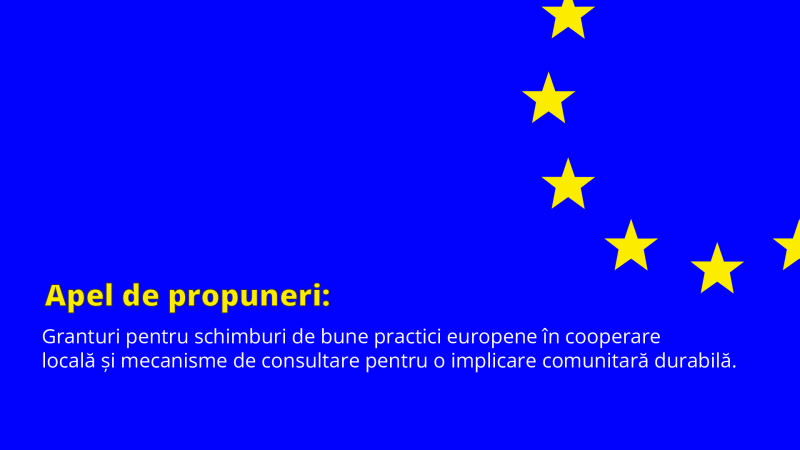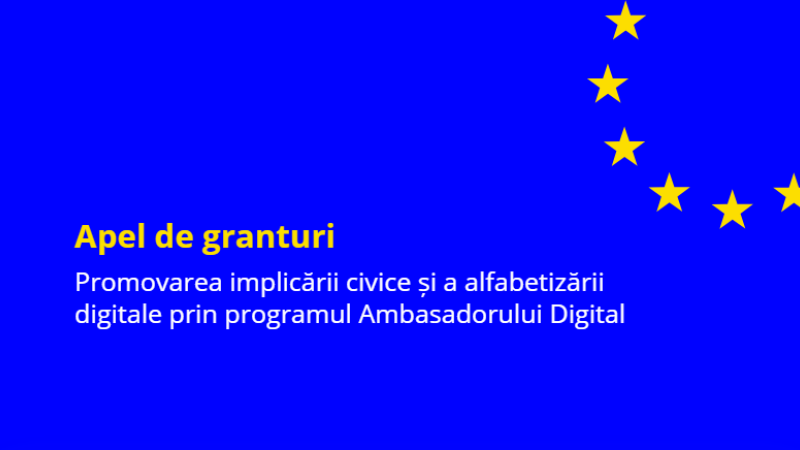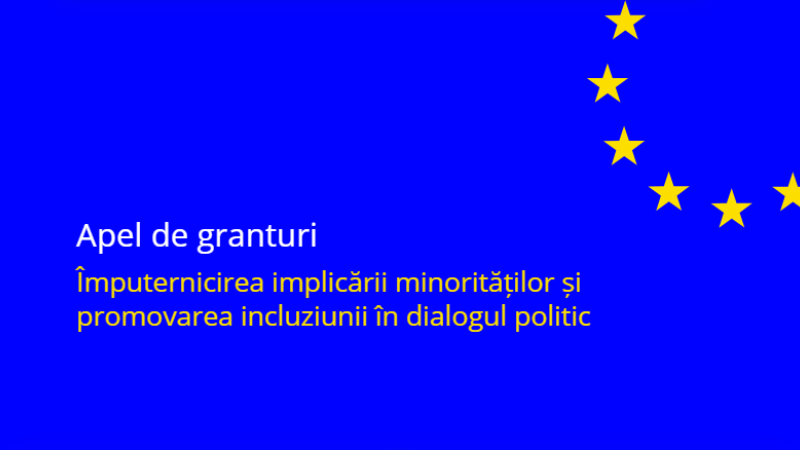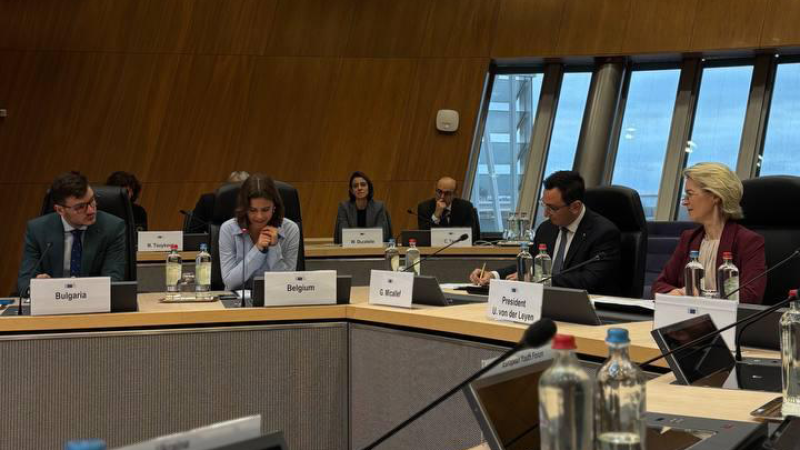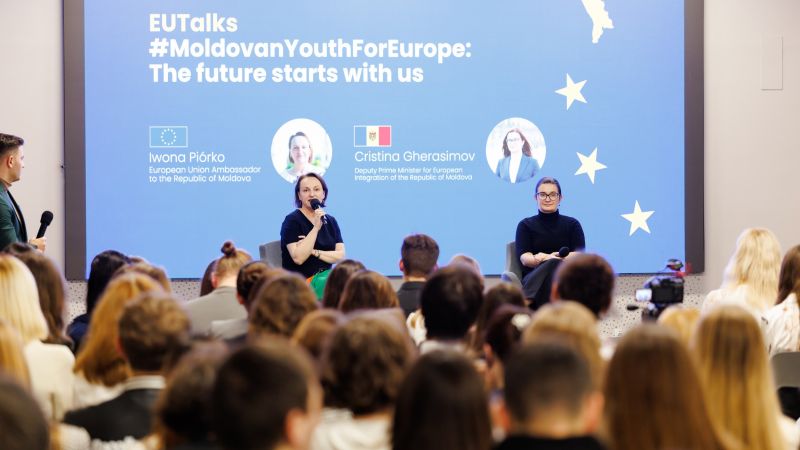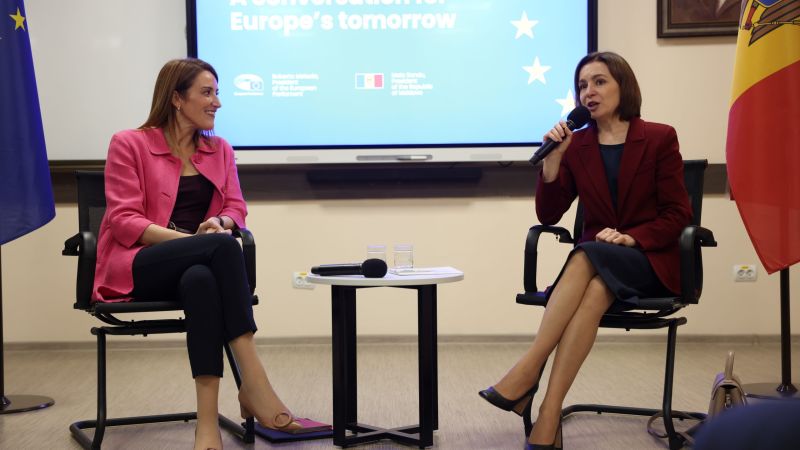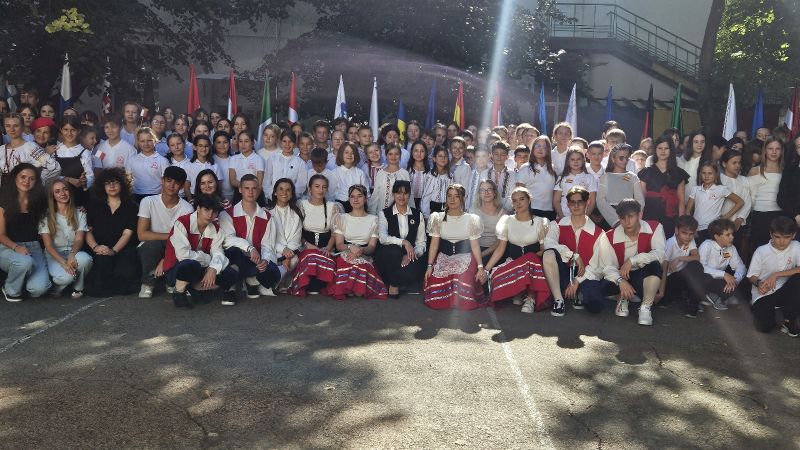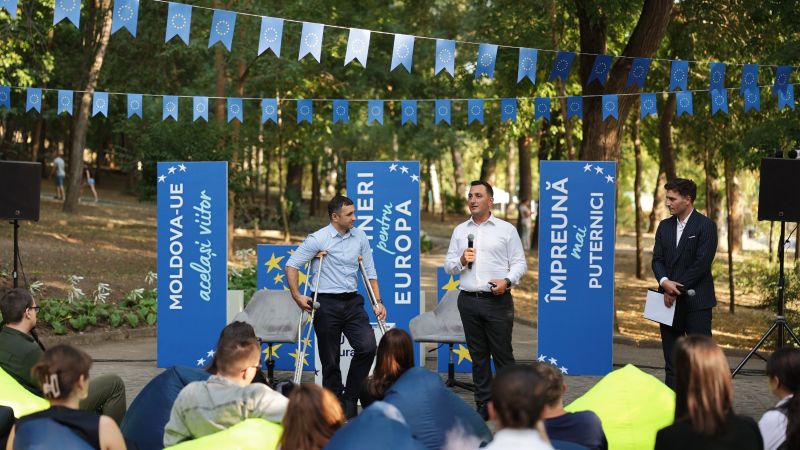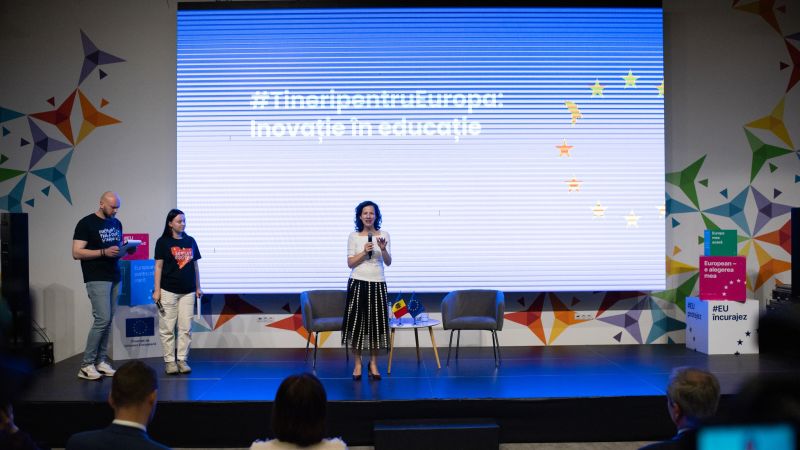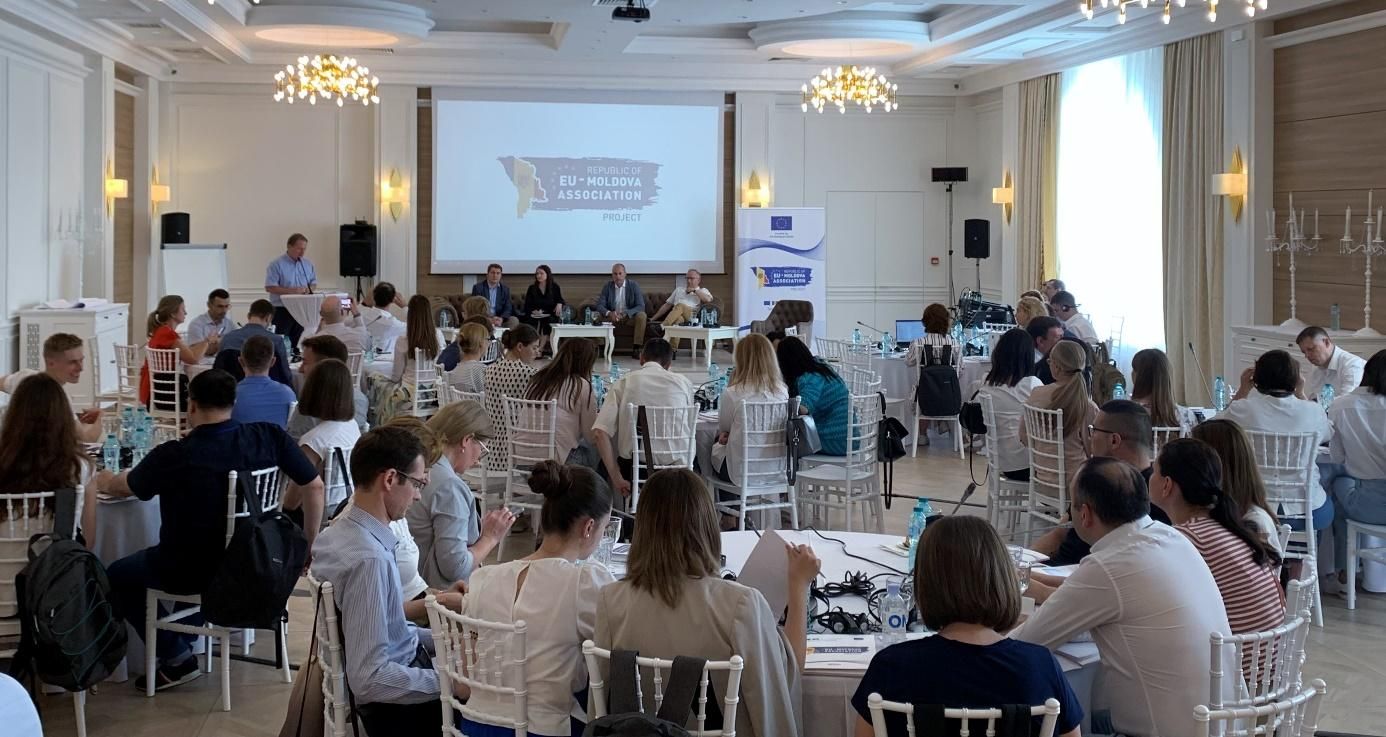
Următorii pași pentru Republica Moldova după obținerea statutului de stat candidat la UE – discutați cu instituțiile de stat din Republica Moldova
La 15 și 16 iulie 2022, proiectul finanțat de UE „Sprijin pentru dialogul politic structurat, coordonarea implementării Acordului de asociere (AA) și îmbunătățirea procesului de aproximare legală în Republica Moldova” a organizat un eveniment de două zile cu tema „Următorii pași pentru Republica Moldova după depunerea cererii de aderare la UE și obținerea statutului de stat candidat”. La eveniment au participat în total 85 de participanți din cadrul diferitelor instituții, alături de reprezentanți ai Delegației UE în Republica Moldova și experți ai proiectului, care au discutat subiecte legate de procesul de negociere a aderării la UE și următorii pași pe calea aderării Republicii Moldova la UE, inclusiv experiența comună de aderare la UE a altor state membre ale UE.

Acest eveniment a fost organizat pentru Ministerul Afacerilor Externe și Integrării Europene (MAEIE) și pentru reprezentanții instituțiilor din Republica Moldova care au contribuit la pregătirea răspunsurilor Republicii Moldova la Chestionarul UE.
Evenimentul s-a axat mai întâi pe experiența MAEIE în organizarea procesului de pregătire a răspunsurilor Republicii Moldova la Chestionarul UE, pe care Comisia Europeană l-a transmis Moldovei în două părți în aprilie 2022. Moldova a elaborat și a transmis răspunsurile sale la Chestionarul UE într-o perioadă de timp extrem de scurtă (în termen de 12 zile pentru partea I și în termen de o lună pentru partea II).
Secretarul de Stat al MAEIE, dl Vladimir Cuc, a detaliat mesajele transmise Moldovei de către UE, așteptările UE după reuniunea la nivel înalt a Consiliului European din 23-24 iunie 2022, precum și următorii pași pe care urmează să îi întreprindă Moldova după primirea avizului Comisiei Europene și a statutului de țară candidată. Dl Primož Vehar, liderul echipei de proiect, a moderat această discuție și a împărtășit experiențele Sloveniei în timpul negocierilor de aderare la UE.
În cea de-a doua parte a evenimentului, moderată de dl Vehar, experții proiectului au expus diverse aspecte practice ale procesului de negociere a aderării la UE, de la deschiderea negocierilor până la ratificarea Tratatului de aderare. Totodată, experții proiectului au oferit exemple specifice obținute din procesul de negociere a aderării la UE de către Slovenia, Serbia și Letonia.
Participanții au fost familiarizați cu principalele etape ale negocierilor de aderare la UE, a dinamicii negocierilor și a principalelor lecții învățate din negocierile de aderare la UE în curs de desfășurare cu Muntenegru și Serbia, care sunt relevante pentru Moldova. Totodată, experții au explicat diversele documente utilizate în cadrul negocierilor (atât cele ale UE, cât și cele ale Republicii Moldova) și au prezentat impactul noii metodologii adoptate de UE pentru negocierile de aderare. Alte subiecte au inclus procesul de examinare și elaborarea rapoartelor, precum și reperele de negociere. În cele din urmă, au fost detaliate pozițiile naționale de negociere, împreună cu cele șase grupuri de negociere și modul în care Moldova ar trebui să-și prioritizeze reformele și să-și planifice următorii pași.
În concluzie, dl Vehar, bazându-se pe experiența tuturor țărilor din Europa Centrală și de Est, precum și a celor din Balcanii de Vest, a subliniat necesitatea pregătirii și adoptării de către Moldova a Programului Național de Adoptare a Acquis-ului (PNAA) ca document cheie de planificare strategică și importanța creării de către Moldova a unui mecanism de coordonare internă pentru procesul de integrare în UE și pentru negocierile ulterioare de aderare.
Proiectul finanțat de UE „Sprijin pentru dialogul politic structurat, coordonarea implementării Acordului de asociere și îmbunătățirea procesului de aproximare legală în Republica Moldova” are drept scop creșterea capacităților Guvernului Republicii Moldova și a altor instituții naționale cheie în implementarea Acordului de Asociere UE-Moldova. Activitatea Proiectului constă din patru componente principale: 1) contribuția la îmbunătățirea continuă a dialogului politic structurat cu societatea civilă; 2) îmbunătățirea mecanismelor de elaborare a politicilor pentru bugetarea adecvată a documentelor strategice; 3) sprijinirea procesului de aproximare juridică prin furnizarea de expertiză tehnică și consolidarea capacităților; și 4) modernizarea sistemelor IT în administrația publică în vederea sprijinirii implementării Acordului de Asociere.
